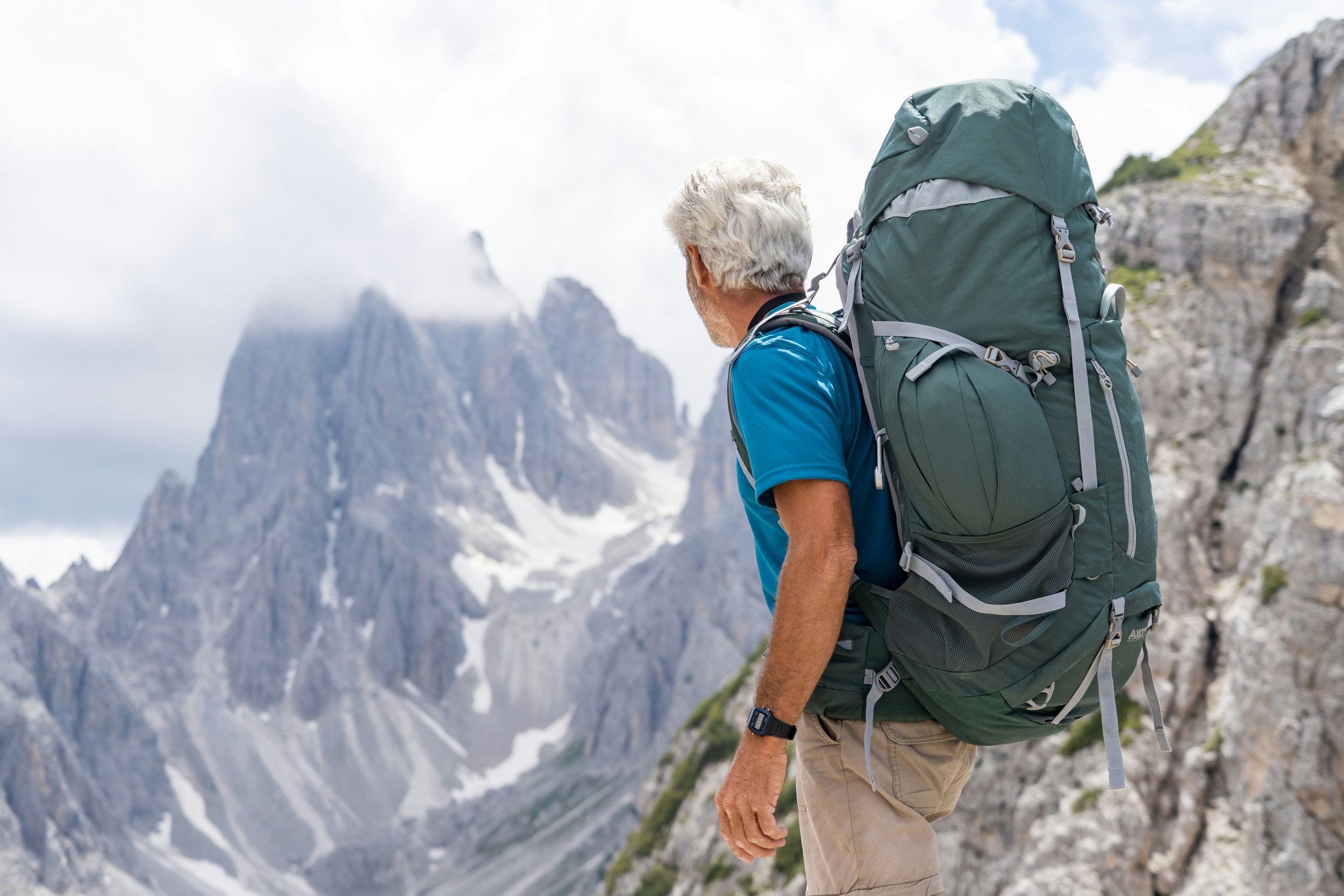How Backpacking Can Boost Your Mental Health
Several years ago, I was on the hunt for a new job. I had been interviewing for weeks and gotten a few offers that I was less enthusiastic about when my dream company asked me to come in for a second interview. I walked in and gave what I thought was a pretty tremendous interview, and they must have agreed, because they offered me a position on the spot.
This was an executive position with a small team to lead, growing a new department, and a generous benefits package. The mother lode. I was beside myself. The owner, who we’ll call Steve, shook my hand and congratulated me. “Do you have an idea of which way you’re leaning?” he asked. Knowing better than to give away my leverage, I just answered, “I’m going to go to the mountains to meditate on it.”
Despite Steve’s puzzled expression, this was true. Now, don’t get it wrong. I don’t literally go to a mountaintop and sit in lotus position for hours on end. I do something that, to me, is even more effective: I backpack.
There’s something about backpacking—perhaps the prolonged physical exertion combined with a degree of monotony—that really opens up your mind and allows it to wander. In the mountains, under the weight of a pack or a canopy of stars, problems always get solved. I always arrive at the trailhead lighter than I began—and it isn’t just because I’ve consumed all my snacks.
When you step into nature, something magical happens. The hustle and bustle of daily life start to fade away, replaced by the whisper of wind through trees and the steady rhythm of your footsteps. This isn’t just a pleasant escape (in fact, it frequently isn’t pleasant at all!); it’s a proven method for reducing stress. Studies have shown that spending time in natural environments lowers cortisol levels, helping to ease anxiety and tension. So, when you’re out there on the trail, it’s not just the fresh air that’s rejuvenating you—it’s science at work.
Even more potent is the feeling of accomplishment when you reach a summit or finish a trail. True; hiking releases endorphins, those feel-good chemicals that boost your mood and provide a natural high. But add to that the soothing effects of nature, and you have a recipe for improved emotional well-being. It’s like a double whammy of happiness—exercise and nature working together to make you feel fantastic. Finally, the rush of having succeeded at a difficult goal you’ve set for yourself can provide a deep sense of pride, as well.
Backpacking is more than just a physical activity; it’s a powerful tool for enhancing mental health. The combination of exercise, nature, and mindfulness offers a unique opportunity to reduce stress, boost mood, and achieve mental clarity. And if you’re considering a backpacking trip for mental health benefits, here are a few tips to make the most of it:
Choose Trails Wisely: Pick trails that suit your fitness level and mental state. Whether you’re after a gentle walk or a rigorous climb, make sure the trail matches your goals.
Practice Mindfulness: Take time to enjoy your surroundings. Pause to breathe deeply, soak in the view, and be present in the moment.
Set Achievable Goals: Set realistic hiking goals to give yourself a sense of accomplishment. It’s not just about reaching the destination, but about enjoying the journey.
I ended up not taking that job; instead, I accepted a partnership at my then-current company. The clarity and confidence I gained from those mountain adventures were invaluable. I chose to stay with my current company and embrace the path I was already on, one step at a time, until I reached the end of the trail. Sometimes, the best decisions come not from boardrooms but from the trails, where the only thing you need to worry about is the next step. And isn’t that a refreshing way to see things?
